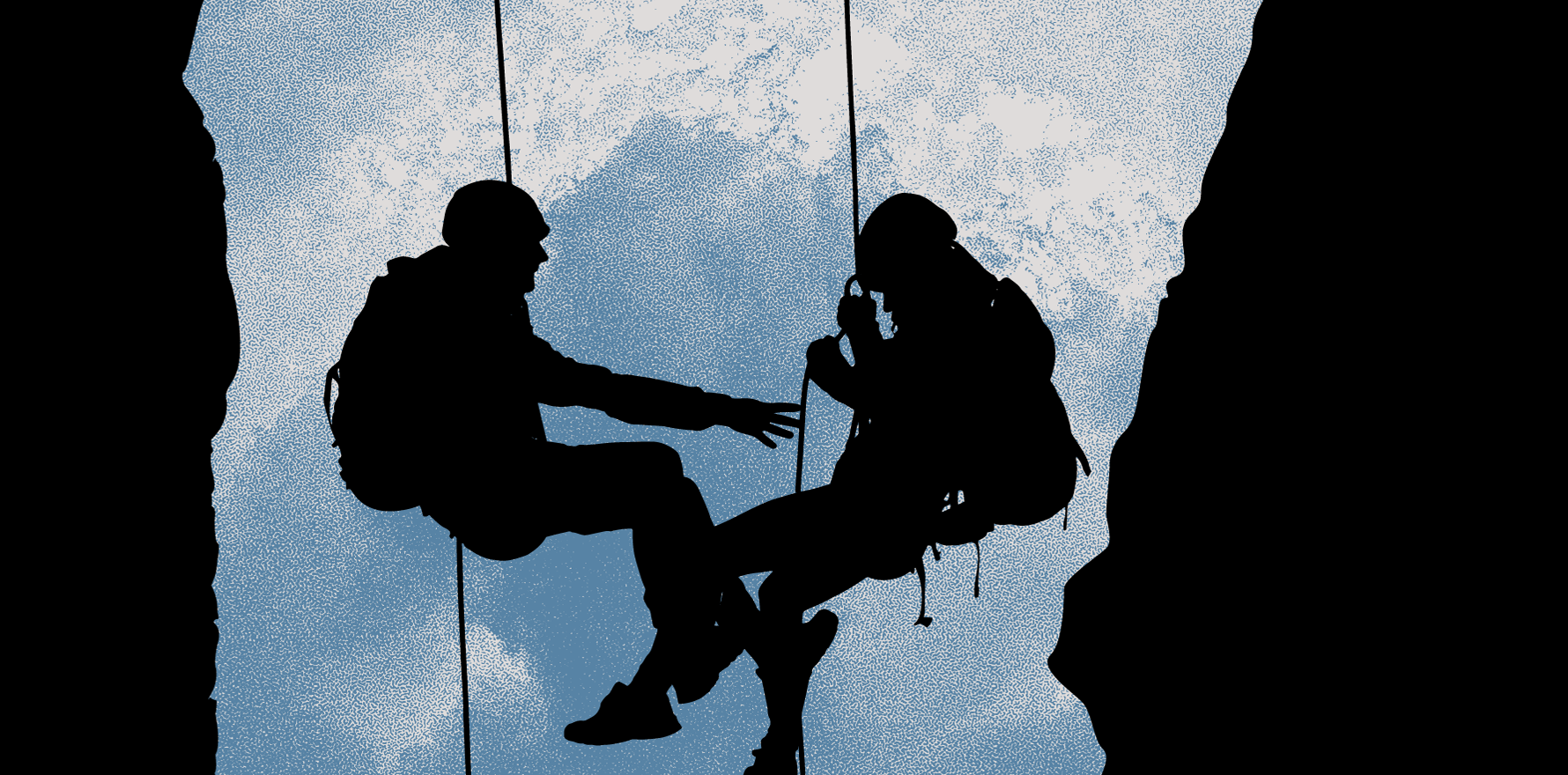Content warning: this is a piece about chronic suicidality from a first-person point of view.
There is great pain in the wake of Dr Eza Lau’s death.
Desperate questions occupy our minds: Could we have done more? Who might be next? Could this be me? How would I know? A clarion call rings out above this confusing morass: “If you are struggling, please get help!”
From my position in the ditch, it just sounded a little absurd. But when I reflected on why that call sounded absurd to me, I realised that maybe it was simply a matter of misunderstanding. That maybe if I shared a little bit of what it might be like to be stuck in the ditch of chronic suicidality, others may understand better how to let a rope down to reach us rather than simply telling us to crawl up and make ourselves known.
I can only offer up my own experience, but I hope this can help open up our conversation as to how to create safe spaces for suicidal people to speak up.
I suppose the first thing I have to share is that recently, for the first time in my life, I decided that suicide is no longer an option. My impression is that this is a lasting commitment to life for the long term.
Notice how I had to share about that first before I wrote anything else. Because I knew that if I didn’t say I was ok, people would come crushing into my world to force me to be “ok”. The topic of suicide is so scary for people who don’t live with it that they don’t know what to do with it. Some avoid it altogether. Others try to rescue us. But very, very few do the one thing that would help: to listen.
The dilemma for the suicidal person is that no one understands our world, and no one wants to understand our world. It is too dreadful to comprehend that life could be so horrible that one would want to end it. No one wants to accept that for us, suicide makes perfect sense. That we have nothing to lose and everything to gain in death. That by staying alive we actually continually make great sacrifices with uncertain rewards. That it actually takes great faith in the words of others to believe that somehow staying alive is supposed to be worth it. It takes great love to stay in the firepit of life; and for those of us who are starving and in pain, it is easier to just jump out of the fire.
In our fear of the world of suicide, we keep making excuses to remain disconnected from it. “Surely, it’s not that bad.” “There is so much to live for.” “Surely, you have people who love you.” These excuses don’t help; they only further alienate us. Instead of connecting us to something that may keep us alive, it separates us out as different, otherworldly. A core part of our being is being rejected to our face, albeit unintentionally.
If you understand that, then you can understand why it is simply not safe for suicidal people to speak up about their heart’s desire. “Safety” for us is not about staying alive; it is about making sure our escape route remains intact. At my worst, I would rather kill myself than risk going back to hospital. I spent my life fleeing imprisonment; I wasn’t going to just let myself get trapped just because someone wanted me to stay alive.
If you want us to speak up about our desires to end our lives, then you will need to make it safe for us to do so. You have to acknowledge that we simply live in different worlds; and you need to seek to cross that world. You will need to master your fears and be willing to come down into the depths of our dark worlds with us. You need to show you are willing to listen to us and not merely shut us up with empty platitudes or hasty solutions.
Listening doesn’t guarantee we will be saved. But listening – real listening – is the only way to show our darkened hearts that we’re really not alone. No amount of talking at us will help. But when we don’t feel alone, the pain is just that much easier to bear.
In my mental health practice, I don’t actually need to talk about suicide for very long at all. Ironically, as soon as my patients understand that I get it – like, really get it – the suicidal urges just evaporate. I don’t know if it works for everyone, but I think it reflects how all we want is for someone to acknowledge our pain. We already know nothing will soothe it; but if someone can sit with us in that pain, it can make it just that much more bearable.
To the quietly suicidal ones out there watching from the dark: it’s hard. I do not presume to know your worlds; you can have very different reasons to remain silent. I do not presume I can say anything that will reach you. But I suppose I want to offer you a suggestion: give these people a chance. They may not understand our pain; but they do all these misunderstanding things because they care. They just simply do not know how to reach our hearts; and we will need to show them the way. Give them a chance and let them in. And you may be (pleasantly) surprised at what peace you can find at the end of that. It takes time and it’s bloody hard work. But I think it’s worth it.
To those who are flagrantly suicidal: I do not have any balm to soothe your pain. I acknowledge the love you show to those around you simply by staying around. It is no solution, but love can help you hang on for just a bit longer. It hurts when people call you attention-seeking; but don’t mind them too much. They have no idea how painful it is to live.
To those who have lost loved ones to suicide: I am sorry for your loss. There are a million unanswered questions. If it is any consolation to you, those who long for death do so because they believe they will find rest there. They stay only because of the ones they love. They don’t leave because they want to leave you; they leave because they cannot bear with the pain of living any longer. If you have loved them as best as you can, then you have already done everything that you can possibly do for them.
To those who presently live with the threat of losing loved ones to suicide: Stay strong; hold steady. It would be terrifying to watch your loved one on that precipice. But master your fear, because fear gets in the way of love. And love is the only light that can pierce that darkness.
Peace.
Dr Kintsugi serves as a GP with a special interest in mental health in Brisbane. Kintsugi is the Japanese art of repairing pottery with gold.
If this article caused distress or if you are prompted to reach out for support, these services are available:
Doctors4doctors crisis support hotline: 1300 374 377
Lifeline: 13 11 14
Beyond Blue: 1300 22 46 36




